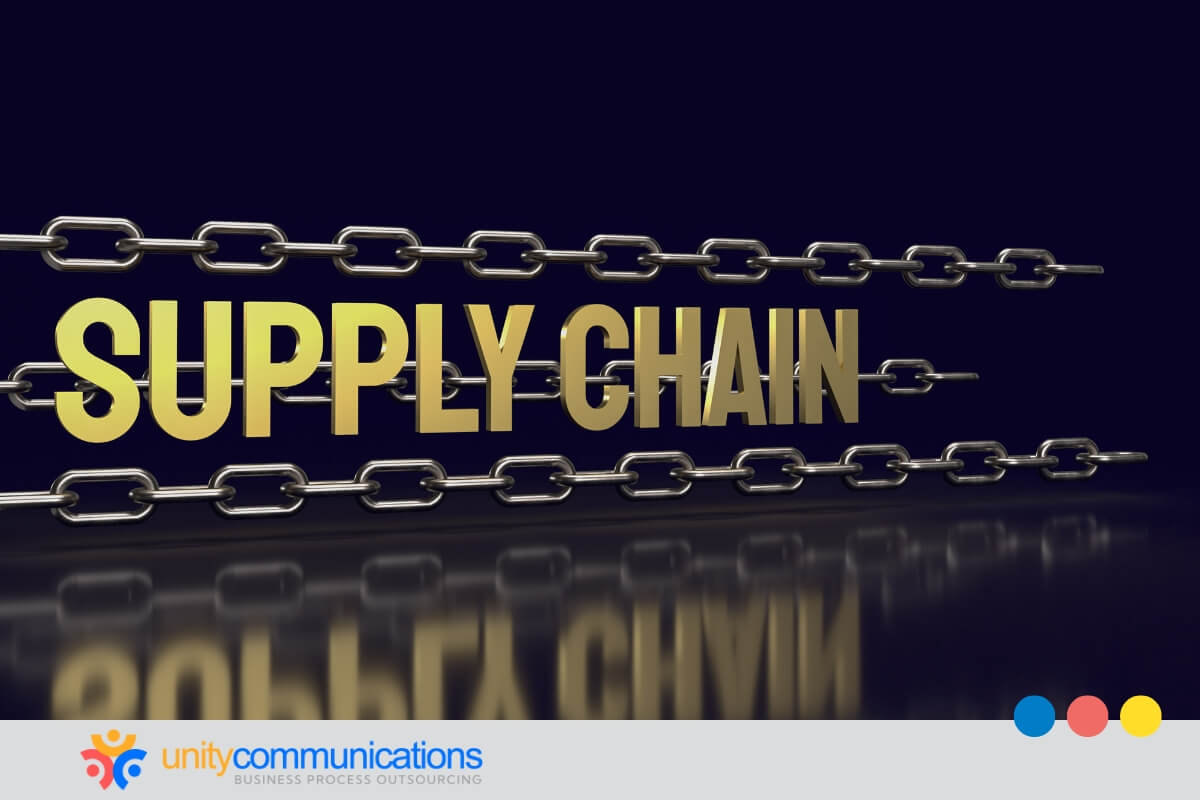Table of Contents
In today’s global economy, business process outsourcing (BPO) has become a strategic solution for cost efficiency and scalability. However, as operations expand across borders, so does the responsibility to uphold ethical practices.
Forward-thinking organizations now recognize that corporate social responsibility (CSR)-driven outsourcing policies include accountability for international labor practices, environmental stewardship, and fair economic contributions.
This article offers a globally focused, business-conversational guide for CSR professionals, procurement managers, and compliance officers to understand how responsible outsourcing fosters ethical standards, sustainability, and long-term brand equity.
What does CSR mean in outsourcing and why it’s more than a buzzword

Before discussing CSR’s value in outsourcing, let’s define: What is BPO? Also known as business process outsourcing, it involves delegating specific business functions such as customer support and data processing to external providers. Usually, these vendors operate in developing countries, allowing them to offer more affordable, quality services.
As a business, outsourcing can significantly decrease operating and labor costs because you can avoid expanding or building in-house teams and investing in expensive software. It also helps you scale quickly as specialized providers can step in with ready-to-deploy talent, systems, and processes that match your growth pace.
However, along with these benefits are the ethical and sustainability risks. Vendors might engage in unfair labor practices or activities that harm the environment and, by extension, your brand.
CSR motivates vendors to embrace practices that positively impact the community and the environment. This includes integrating ethical considerations when hiring and sustaining relationships with third-party suppliers. For example, they must:
- Adhere to ethical standards, such as safe working conditions and fair wages
- Reduce their environmental impact through energy conservation
- Follow industry regulations, including labor rights and pollution control
Ultimately, companies with CSR-driven outsourcing policies, explained through commitments to fair labor, environmental responsibility, and ethical governance, ensure that their global operations align with their core values.
Why CSR-driven outsourcing delivers business value
Adopting CSR-focused outsourcing policies yields numerous benefits, making it a solid business strategy. It enhances your brand’s reputation, increases competitive advantage, and strengthens stakeholder relationships. A recent study shows that 76% of business leaders regard CSR as key to mitigating reputational risks, while 83% of workers would consider leaving a firm that ignores its CSR values.
Externally, it appeals to socially conscious consumers. The same research found that around 77% prefer brands with proven ethical practices. Ethical sourcing also enhances operational resilience by avoiding chaos caused by scandals or legal issues. Guaranteeing safe working hours, fair labor practices, and environmentally sound operations minimizes risks across the supply chains.
Multiple case studies show these actions directly contribute to long-term performance and public trust. Explaining your CSR-driven outsourcing policies clearly shows stakeholders that you take responsibility seriously.
How to embed CSR in your outsourcing strategy
Embedding CSR into outsourcing starts with rethinking how you select and manage vendors. Conducting due diligence on labor practices, environmental policies, and credentials is essential. For example, having ISO 14001 and SA8000 certifications might indicate the BPO provider’s commitment to environmental and labor standards.
According to Deloitte’s 2024 CxO Sustainability Report, 70% of firms now consider climate impacts in strategic planning, an increase from 61% in the previous year and a shift reflecting broader CSR integration into core business decisions.
Your business can also train procurement teams to integrate CSR into proposal requests (RFPs) and contract negotiations. Smart contracts can include clauses on working conditions, emission caps, and reporting requirements.
Collaboration is another crucial strategy. Improve their CSR performance by offering training, sharing tools, and incentivizing best practices. Importantly, align outsourcing with corporate goals. For example, a firm with a net-zero carbon commitment should partner with providers who actively reduce carbon emissions.
The goal is to have CSR-driven outsourcing policies embedded throughout supplier operations and decision-making processes.
Common challenges in implementing responsible outsourcing
Although the CSR benefits of outsourcing are clear, implementing it can introduce challenges. Chief among them is balancing cost efficiency with ethical standards. Lower-cost suppliers in developing countries might cut corners, especially where local regulations are lax. Enforcing CSR overseas involves navigating international labor complexities and cultural differences.
Visibility is another concern. Many companies lack insight into tier 2 or 3 suppliers, increasing the risk of hidden violations. For example, Apple’s 2022 incident with Suyin Electronics revealed underage labor at a key supplier, resulting in severe backlash.
Economic fluctuations also test commitments, as some might reduce their sustainability efforts during downturns. Additionally, many companies face internal resistance or lack robust systems for monitoring outsourced operations.
Recognizing these challenges is the first step to solving them. By explaining CSR-driven outsourcing policies as part of a company’s DNA, firms can better handle complexity and build resilient, responsible BPO partnerships.
Building transparency for supply chain accountability

Transparency in supply chains is non-negotiable for effective CSR. You must know your suppliers, including how they operate. Third-party audits remain reliable for verifying adherence to safety, labor, and environmentally responsible practices.
Like other companies, you can use blockchain and data platforms to track compliance, map risks, and gain real-time visibility. Grievance mechanisms, such as worker hotlines, are essential for surfacing concerns that might otherwise go unreported. Publishing detailed supplier performance in CSR reports boosts accountability and trust.
Transparency helps companies identify and fix issues before they escalate, improving CSR performance. Clear visibility deters malpractice and encourages vendors to maintain high standards. With CSR-driven outsourcing policies explained clearly to all involved parties, supply chain transparency shifts from an abstract idea to a practical, daily objective.
Getting stakeholders involved for lasting impact
For CSR in outsourcing to be successful, you must involve all relevant stakeholders, including communities where BPO partners operate. Early engagement, such as co-developing supplier codes of conduct or conducting joint training, builds trust and aligns expectations.
A notable case study is Nike, which faced global criticism for poor labor practices in its supply chain. After stakeholder pressure, the company revamped its monitoring systems and committed to higher standards. Businesses that proactively involve stakeholders in CSR initiatives reduce risks and strengthen relationships.
Localized engagement also matters in other ways. Involving community leaders helps ensure projects meet local needs and respect cultural norms. Internally, when employees understand and support the company’s CSR commitments, they act as champions, not just enforcers.
Externally, investors and consumers become advocates when they see CSR-driven outsourcing policies explained transparently. Actual influence emerges when CSR moves from a compliance function to a shared mission that unites everyone in the value chain.
Holding outsourcing partners accountable to standards
Accountability is central to upholding CSR values in outsourced operations. Monitoring begins with setting key performance indicators, such as injury rates, fair wages, carbon emissions, and training hours. Regular scheduled and surprise audits can verify on-site compliance, but data collection doesn’t end there.
You can use software to track CSR indicators, integrate supplier feedback, and monitor long-term progress. Workers’ voices are also critical; grievance channels such as anonymous helplines often reveal insights missed in formal reviews.
The evaluation process should go beyond fault-finding to encourage improvement. For instance, you could reward a logistics partner that cuts carbon emissions by 20% through performance bonuses or preferred-vendor status. Sharing CSR performance dashboards with vendors creates transparency and motivates progress.
Keeping your CSR-driven outsourcing policies explained through continuous evaluation ensures that values stay aligned, expectations are met, and partnerships improve over time.
Turning responsible outsourcing into a brand superpower
Responsible outsourcing builds trust and brand equity, aligning your operations with consumer and ESG expectations. Brands that uphold CSR commitments earn loyalty and differentiate in competitive markets.
- Explaining CSR-driven outsourcing policies to the public can influence brand perception.
- Companies that foster ethical supply chains earn a reputation as responsible, trustworthy brands, and consumers increasingly favor such businesses.
- When a brand treats overseas workers fairly and reduces environmental harm, it resonates with customers’ values, building loyalty and a competitive advantage.
On the flip side, failures in CSR can quickly damage your name. We have seen how supply chain scandals, such as labor violations or pollution, lead to public backlash.
News travels fast, and brands risk being labeled exploitative or irresponsible, eroding customer trust built over the years. Investors also watch these indicators; many incorporate environmental, social, and governance (ESG) criteria when assessing companies.
Positive social impact through outsourcing wins customer approval, attracts talent, and investments. In practice, firms with robust CSR in outsourcing often turn their responsibility into a marketing strength.
Ultimately, brand reputation today reflects a company’s values in action. By upholding high standards in all outsourced operations and keeping CSR-driven outsourcing policies explained to the public, you can protect and even elevate your brand image, translating ethics into tangible business value.
New global laws are making CSR in outsourcing mandatory

Regulations on CSR in outsourcing rapidly evolve. What was once voluntary is now often legally required. For example:
- Germany’s Supply Chain Due Diligence Act mandates large companies to identify and manage environmental and human rights concerns in their supplier networks.
- Across the European Union, the 2024 Corporate Sustainability Due Diligence Directive requires major companies to audit their supply chains for environmental damage and forced labor. Non-compliance could result in fines of up to 5% of global turnover.
- In the U.S., import bans on goods linked to forced labor have prompted tighter supply chain monitoring.
CSR is no longer just about ethics but legal compliance and risk management. You must stay updated on labor laws in all outsourcing locations, including wage regulations, working hours, and worker safety.
You can also include CSR clauses in outsourcing contracts, conduct regular legal audits, and train suppliers to meet legal standards. Clearly defined CSR expectations reduce liability and help firms stay ahead of shifting regulations.
Emerging trends shaping CSR in outsourcing
The future of CSR outsourcing is dynamic and data-driven. Emerging technologies such as artificial intelligence (AI) and blockchain improve real-time compliance tracking and product traceability. Impact sourcing (or outsourcing to underserved communities) is gaining traction to drive sustainable development and create jobs with positive social impact.
Many companies are setting supply chain-specific net-zero targets, recognizing their role in reducing carbon emissions. Regulatory demands will also grow. The EU outsourcing policies, for example, apply to thousands of companies globally, even beyond Europe. Future-ready businesses will embrace continuous learning, update policies regularly, and foster innovation across BPO vendors.
Most importantly, companies must view CSR as a journey. With CSR-driven outsourcing policies explained as living frameworks, firms can remain adaptable, accountable, and aligned with global sustainability goals.
The bottom line
Outsourcing responsibly isn’t just a moral choice, it’s a strategic imperative. By embedding CSR at every stage of outsourcing, companies can mitigate risks, strengthen their brand, and create meaningful change.
Companies that act with integrity will lead the way as global standards rise and stakeholder expectations evolve. They can seize the opportunity to make a positive social impact globally and build a sustainable legacy.
Ready to transform your outsourcing strategy? Let’s connect to explore how your business can turn responsibility into impact.




